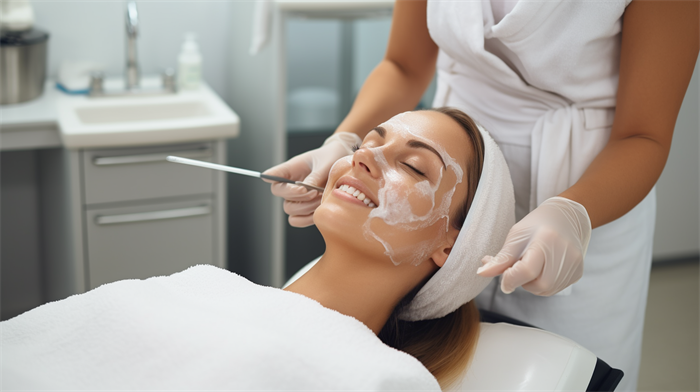Understanding Facial Acupuncture in Dunedin: Is it Painful?
Facial acupuncture, also known as cosmetic acupuncture or facial rejuvenation acupuncture, is a therapeutic procedure that involves inserting fine needles into the skin of the face. This practice is rooted in traditional Chinese medicine (TCM) and aims to enhance facial appearance by improving blood circulation, stimulating collagen production, and reducing signs of aging. In Dunedin, this treatment has gained popularity as a natural alternative to cosmetic surgery. However, one of the common concerns among potential clients is the level of discomfort associated with facial acupuncture.

1. The Procedure of Facial Acupuncture
Facial acupuncture involves the insertion of very thin needles into specific points on the face. These points are chosen based on TCM principles, which dictate that they correspond to various meridians and energy pathways in the body. The needles are typically inserted at a depth that is comfortable for the client, and the practitioner adjusts the depth and angle according to the individual's tolerance and the specific area being treated. The procedure is designed to be minimally invasive, aiming to stimulate the body's natural healing processes without causing significant pain.
2. Pain and Discomfort Levels
The level of pain experienced during facial acupuncture can vary greatly from person to person. Most clients report feeling only a slight pinch or sting when the needles are first inserted, which is often described as less intense than a mosquito bite. Once the needles are in place, many people feel little to no discomfort. Some may experience a mild sensation of heaviness or tingling, but these sensations are generally considered tolerable and are part of the therapeutic effect of the treatment. The needles are usually left in place for about 20-30 minutes, during which time the client can relax and enjoy the benefits of the treatment.
3. Factors Affecting Comfort During Treatment
Several factors can influence the comfort level during facial acupuncture. The skill and experience of the practitioner play a significant role. A well-trained acupuncturist will know how to insert the needles with precision and care, minimizing any potential discomfort. Additionally, the client's own sensitivity to pain and their overall health can affect their experience. Those who are more relaxed and have a higher pain threshold may find the procedure to be even more comfortable. It's also important to note that the use of sterile, single-use needles ensures safety and reduces the risk of infection, contributing to a more pleasant experience.
4. Preparing for Facial Acupuncture
To ensure a comfortable and effective facial acupuncture session, it's advisable to prepare adequately. Clients should avoid heavy makeup, alcohol, and caffeine on the day of the treatment. Staying hydrated and maintaining a healthy diet can also help in managing any potential discomfort. Communicating openly with the practitioner about any concerns or preferences regarding pain tolerance is crucial. This allows the practitioner to tailor the treatment to the individual's needs, ensuring a more comfortable experience.
5. Post-Treatment Care
After the facial acupuncture session, it's important to follow the practitioner's recommendations for post-treatment care. This may include avoiding strenuous activities, sun exposure, and harsh skincare products for a few days. Drinking plenty of water and getting adequate rest can help in the healing process and enhance the benefits of the treatment. Some clients may experience mild redness or swelling immediately after the session, but these symptoms typically resolve quickly and are a sign of the body's natural response to the treatment.
FAQ: Frequently Asked Questions
Q: How often should I get facial acupuncture?
A: The frequency of treatments can vary based on individual needs and goals. Generally, a series of 6-12 sessions, spaced a week or two apart, is recommended for optimal results. Maintenance sessions may be needed every few months thereafter.
Q: Are there any side effects of facial acupuncture?
A: Side effects are generally minimal and may include temporary redness, minor bruising, or a slight headache. These are usually short-lived and resolve on their own within a day or two.
Q: Can facial acupuncture replace cosmetic surgery?
A: While facial acupuncture can provide significant cosmetic benefits, it is not a substitute for surgical procedures. It is best viewed as a complementary therapy that can enhance natural beauty and improve skin health without the risks and downtime associated with surgery.
In conclusion, facial acupuncture in Dunedin is a safe and effective treatment that is generally well-tolerated. By understanding the procedure, preparing adequately, and following post-treatment care recommendations, clients can enjoy the benefits of this natural rejuvenation method with minimal discomfort.





